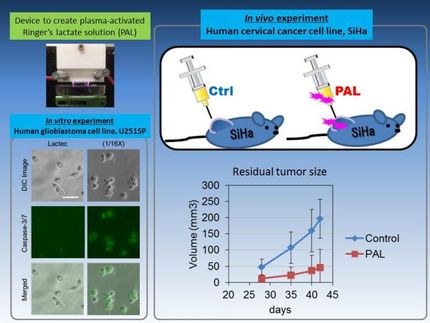Pulmonary fibrosis culprits
Isoketal-modified proteins as a potential therapeutic target of pulmonary fibrosis
Isoketals (IsoKs) – highly reactive compounds formed when membrane lipids are attacked by free radicals – are emerging as a mechanistic link between pathogenic reactive oxygen species and disease progression. However, the identity of IsoK-modified proteins and whether isoketal generation is subject to genetic regulation remains unclear.
Stacey Mont, Michael L. Freeman , Ph.D., and colleagues found that the enzyme Nox2, which generates superoxide, and Nrf2-mediated antioxidant gene expression are key regulators of isoketals generated in pulmonary tissue.
Purification of IsoK-modified proteins followed by chromatography-mass spectrometry analysis revealed that proteins in numerous cellular pathways are susceptible to isoketal modification. Prominent modification occurred in a mouse model of radiation-induced pulmonary fibrosis and in human idiopathic pulmonary fibrosis. Modification inhibits protein degradation, which can induce programmed cell death (apoptosis).
These findings identify isoketal-modified proteins as a previously unrecognized feature of pulmonary fibrosis and as a potential therapeutic target for this currently untreatable disease.
Original publication
Stacey Mont, Sean S. Davies, L. Jackson Roberts second, Raymond L. Mernaugh, W. Hayes McDonald, Brahm H. Segal, William Zackert, Jonathan A. Kropski, Timothy S. Blackwell, Konjeti R. Sekhar, James J. Galligan, Pierre P. Massion, Lawrence J. Marnett, Elizabeth L. Travis & Michael L. Freeman; "Accumulation of isolevuglandin-modified protein in normal and fibrotic lung"; Scientific Reports; 2016
Most read news
Original publication
Stacey Mont, Sean S. Davies, L. Jackson Roberts second, Raymond L. Mernaugh, W. Hayes McDonald, Brahm H. Segal, William Zackert, Jonathan A. Kropski, Timothy S. Blackwell, Konjeti R. Sekhar, James J. Galligan, Pierre P. Massion, Lawrence J. Marnett, Elizabeth L. Travis & Michael L. Freeman; "Accumulation of isolevuglandin-modified protein in normal and fibrotic lung"; Scientific Reports; 2016
Topics
Organizations
Other news from the department science

Get the life science industry in your inbox
By submitting this form you agree that LUMITOS AG will send you the newsletter(s) selected above by email. Your data will not be passed on to third parties. Your data will be stored and processed in accordance with our data protection regulations. LUMITOS may contact you by email for the purpose of advertising or market and opinion surveys. You can revoke your consent at any time without giving reasons to LUMITOS AG, Ernst-Augustin-Str. 2, 12489 Berlin, Germany or by e-mail at revoke@lumitos.com with effect for the future. In addition, each email contains a link to unsubscribe from the corresponding newsletter.
Most read news
More news from our other portals
See the theme worlds for related content
Topic World Mass Spectrometry
Mass spectrometry enables us to detect and identify molecules and reveal their structure. Whether in chemistry, biochemistry or forensics - mass spectrometry opens up unexpected insights into the composition of our world. Immerse yourself in the fascinating world of mass spectrometry!

Topic World Mass Spectrometry
Mass spectrometry enables us to detect and identify molecules and reveal their structure. Whether in chemistry, biochemistry or forensics - mass spectrometry opens up unexpected insights into the composition of our world. Immerse yourself in the fascinating world of mass spectrometry!
Last viewed contents
Sugar in western diets increases risk for breast cancer tumors and metastasis
Herceptin now approved in the EU for patients with HER2-positive advanced stomach cancer - First targeted biological therapy to show survival benefit in stomach cancer
Silence Therapeutics Forms Scientific Advisory Board
InteRNA Technologies and Dana-Farber Cancer Institute to collaborate on the role of microRNAs in cancer pathways
Bayer Animal Health and Paraco agree on access to lead molecules

Wiggly proteins guard the genome - Dynamic network in the pores of the nuclear envelope blocks dangerous invaders

Defective immune cells in the brain cause Alzheimer’s disease - Scientists are studying the role of immune cell activation in Alzheimer's disease

Sepsis in Children: Improved Diagnosis Thanks to New Global Criteria - Researchers applied machine-learning methods to extrapolate from the data analysis evidence-based criteria for diagnosing






















































